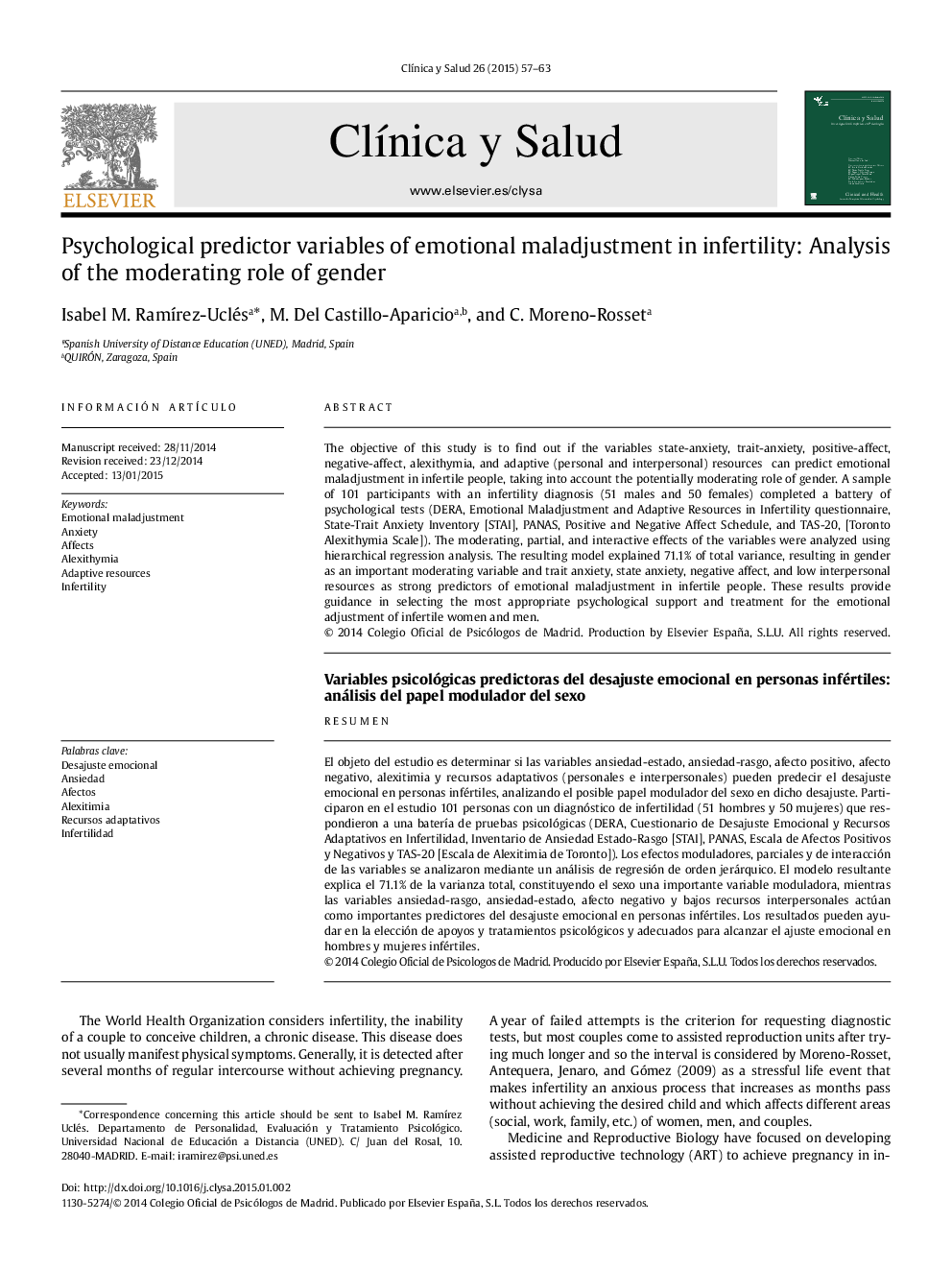| Article ID | Journal | Published Year | Pages | File Type |
|---|---|---|---|---|
| 903539 | Clínica y Salud | 2015 | 7 Pages |
The objective of this study is to find out if the variables state-anxiety, trait-anxiety, positive-affect, negative-affect, alexithymia, and adaptive (personal and interpersonal) resources can predict emotional maladjustment in infertile people, taking into account the potentially moderating role of gender. A sample of 101 participants with an infertility diagnosis (51 males and 50 females) completed a battery of psychological tests (DERA, Emotional Maladjustment and Adaptive Resources in Infertility questionnaire, State-Trait Anxiety Inventory [STAI], PANAS, Positive and Negative Affect Schedule, and TAS-20, [Toronto Alexithymia Scale]). The moderating, partial, and interactive effects of the variables were analyzed using hierarchical regression analysis. The resulting model explained 71.1% of total variance, resulting in gender as an important moderating variable and trait anxiety, state anxiety, negative affect, and low interpersonal resources as strong predictors of emotional maladjustment in infertile people. These results provide guidance in selecting the most appropriate psychological support and treatment for the emotional adjustment of infertile women and men.
ResumenEl objeto del estudio es determinar si las variables ansiedad-estado, ansiedad-rasgo, afecto positivo, afecto negativo, alexitimia y recursos adaptativos (personales e interpersonales) pueden predecir el desajuste emocional en personas infértiles, analizando el posible papel modulador del sexo en dicho desajuste. Participaron en el estudio 101 personas con un diagnóstico de infertilidad (51 hombres y 50 mujeres) que respondieron a una batería de pruebas psicológicas (DERA, Cuestionario de Desajuste Emocional y Recursos Adaptativos en Infertilidad, Inventario de Ansiedad Estado-Rasgo [STAI], PANAS, Escala de Afectos Positivos y Negativos y TAS-20 [Escala de Alexitimia de Toronto]). Los efectos moduladores, parciales y de interacción de las variables se analizaron mediante un análisis de regresión de orden jerárquico. El modelo resultante explica el 71.1% de la varianza total, constituyendo el sexo una importante variable moduladora, mientras las variables ansiedad-rasgo, ansiedad-estado, afecto negativo y bajos recursos interpersonales actúan como importantes predictores del desajuste emocional en personas infértiles. Los resultados pueden ayudar en la elección de apoyos y tratamientos psicológicos y adecuados para alcanzar el ajuste emocional en hombres y mujeres infértiles.
